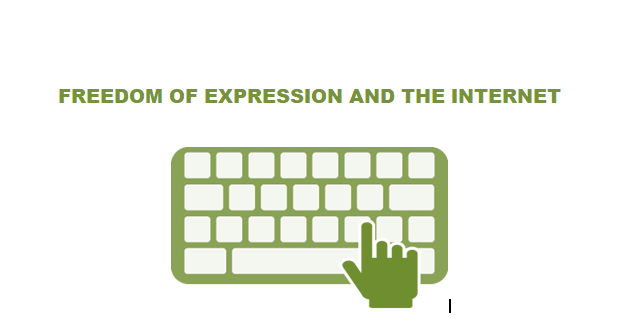(26 March 2021) African Centre for Justice and Peace Studies (ACJPS) expresses deep concern over the targeting of Sudanese citizens by the authorities for their online activity. ACJPS has documented an incident where a Sudanese human rights defender has been charged with publishing false news under Article 24 the Cybercrime Act, 2018 based on Facebook post discussing the health situation in Sudan.
Over the years, social media platforms have been increasingly used by Sudanese citizens to voice concerns over the governance of their country, among others. Given the restrictive space, the online platforms are used as a medium to freely express concerns and commentary on different issues affecting the ordinary citizen. Various media houses in Sudan have also launched online news sites that have made it possible to publish articles on topics that might have otherwise been deemed red line topics and exposed them to pre-print or post print censorship and other restrictive tactics used by the authorities. However, the Government has extended its repressive tactics and carried out arrests and interrogation of individuals for their online activity and relied on crimes under the Cybercrimes Act to charge individuals for their social media activity.
ACJPS urges the Sudanese authorities to respect and guarantee the right to freedom of expression as provided for in article 56 of the Constitutional Declaration of 2018 and international and regional human rights treaties that Sudan is a state party to. ACJPS further urges the Government to ensure that this freedom is protected both online and off-line in accordance with the constitution and universally accepted standards. The Government should further instruct its law enforcement agencies to cease harassment and intimidation of individuals exercising their rights legitimately.
ACJPS also calls for the decriminalization of false news and proposes a law reform within the country to adhere to regional and international standards to which Sudan has committed, including the African Charter on Human and Peoples’ Rights and the International Covenant on Civil and Political Rights.
On the evening of 29 November 2020, two policemen riding on a tuk tuk came to the house of human rights defender, Ms. Khadeeja Aldewaihi in Al-izba neighborhood in Khartoum. They met one of her relatives at the main gate and lied about being former colleagues of Ms. Khadeeja from the Al Shorouk TV channel. The officers were let in and when Ms Aldewaihi met them, she did not recognize any of them. One of the told her that they knew her contract with Al Shorouk TV had ended but they had something for her. He then handed her a document summoning her to appear for questioning at the police station on 30 November 2020 in relation to a criminal a complaint under article 24 of the Cybercrimes Act (Publishing false news online).
On 30 November 2020, Ms Aldewaihi went to the police station with her sister. She was interrogated about posts on her Facebook account written on 13 May 2020 concerning the health situation in Sudan. Ms Aldewaihi admitted that it was her Facebook account and that she wrote the post. The investigator questioned her why she wrote about health issues when she is an agricultural engineer.
She was released that same day but on the morning of 14 December 2020, the investigator again summoned her to come at 12 noon to the Office of the Prosecutor to complete the investigation. The investigation began with basic information and repeating of the previous questions in addition to a question about her political affiliation and her engagement with the Sudanese communist party. Ms. Aldewaihi stated that she shared posts on Facebook in her personal capacity. She was summoned again on Wednesday, 16 December 2020 and was interrogated about her relationship with the Graduate Association and their Facebook account. She denied any relationship with this association.
On 18 March 2021, the Prosecutor in charge of cybercrimes charged Ms. Khadeeja with publishing false news online under articles 24 and 25 of Cyber Crimes Act, 2018 and issued an order to refer the case to the court for trial. No court session has been held yet, but she will be summoned before a court at any given time.
Background
The Government of Sudan has relied on restrictive laws to control press freedom as well as online activity. The Cybercrimes Act was designed by the deposed dictatorial regime to limit the freedom of activists, bloggers, and media professionals, as well as other laws such as the press and publications. In May 2018, ACJPS reported about four Sudanese citizens who were charged with defamation and cybercrimes for social media activity. In June 2018 amendments to the Cybercrimes Act introduced criminal penalties for spreading fake news online.
In July 2020, the Sovereign Council signed into law the Cybercrime Prevention (Amendment) Act 2020. These amendments relate to the 2018 Cybercrimes Act. The amendments increased terms of imprisonment for various penalties including the online publication of false news whose maximum prison term raised to four years from one year.
The Government’s efforts to combat information related crimes have been viewed as attempts to extend restrictions to online content with an aim of further suppressing dissenting voices. According to a Freedom House report, Sudan’s score on civil liberties is 10 out of 60 in 2020.
Contact: Mossaad Mohamed Ali, Executive Director, African Centre for Justice and Peace Studies. (English, Arabic, Swedish): +46727712782, mossaad.ali@acjps.org
 African Centre for Justice and Peace Studies ACJPS | المركز الافريقي لدراسات العدالة و السلام
African Centre for Justice and Peace Studies ACJPS | المركز الافريقي لدراسات العدالة و السلام




